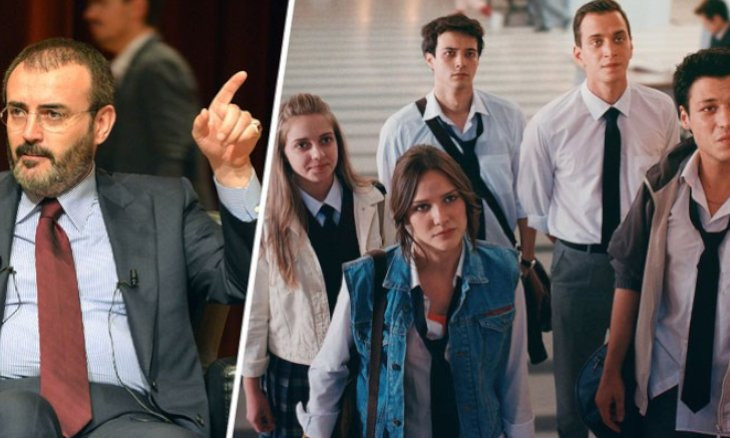Is Netflix Turkey providing opportunities or encouraging monopoly ?
Şenay Aydemir writes: It seems like Netflix, rather than providing resources to Turkey and contributing to the advancement of the sector, chooses to work with producers that already have a strong share in the market. Though the Netflix Turkey team claims they are open to all kinds of projects and ideas, they are obviously more open to certain ideas, projects and production companies.
Şenay Aydemir
Themonopolization of the entire process of cinema and TV distribution,distribution and broadcasting in Turkey has been a source ofdiscussion for many years. Because I monitor this closely, I’vewritten about it repeatedly, especially onthe existence of a monopoly centered on distribution and itsconsequences.
For several years, three major distribution companies in the country accounted for 80 percent of the market and only one cinema chain received more than 50 percent of the audience. Now, with the pandemic, the cinema crisis has only deepened.
 Netflix removes film 'Cuties' from Turkey catalogue upon media watchdog's orders
Netflix removes film 'Cuties' from Turkey catalogue upon media watchdog's ordersAfterdistribution and cinemas were monopolized, so was production. Thosepowerful producers increasingly dominated the market. Therewere times in Turkey when three producers accounted for 70 percent ofthe market. Analyses and articles that were written during thatperiod are now in the archives. I shall focus on the situation today.
Itis sometimes claimed that with the emergence of digital platforms,the production, distribution and screening models in the fields of TVand cinema will be democratized. When digital platforms from Turkeywere introduced to Netflix, some thought the creative base wouldrapidly grow. Some also thought that small producers who weren’table to compete with big producers but produced good works bothcontent-wise and aesthetically, would be able to receive their sharesfrom this democratization process. What is more, it was widelyassumed that excellent productions would emerge. Yet somehow it doesnot seem to be working as such.
Ultimately, we were left with the fleeting pleasure of a couple of good films and series a year, which all evolved into repetitions of each other. But who is behind these shows?
The other day, Netflix Turkey organized an online meeting to introduce its upcoming local projects. Regardless of the content and the quality of the projects, there is a situation that is worth discussing with regards to this purported “democratization.” Four major production companies shot almost all of Netflix Turkey’s new local productions, all of which had worked with it previously.
 Turkey's media watchdog signals censorship of Netflix series The Protector
Turkey's media watchdog signals censorship of Netflix series The ProtectorBKMis the producer of the films “Have You Ever Seen Fireflies” and“Leyla Everlasting” and the series “50 m2” which are amongthe new projects. OGM, the production company of Netflix'salready popular series “The Gift (Atiye)” is joining the newseason with three productions, “Struggle Alley” and “Summer‘96”, and the series “A Submarine Story.”
Ay Yapım was the producer of “Love 101.” It has successfully participated in this democratic competition and seems to have two of its projects accepted by Netflix, namely the series “The Uysals” and “As the Crow Flies.” Netflix Turkey’s first original production “Hakan: Guardian” was produced by “O3,” which is now competing with a series with a working title Club, and a production named “Love Me So Much.”
Asidefrom those, there is Emre Şahin’s Karga Seven Yapım which isproducing a series called “Midnight at the Pera Palace.” Twoprojects belong to Taylan Brothers and Cem Yılmaz - the names speakfor themselves. The only winner of this truly democratic competitionis “Fatma” by Idea Film, which we are all look forward towatching.
Therefore,it seems like Netflix, rather than providing resources to Turkey andcontributing to the advancement of the sector, chooses to work withproducers that already have a strong share in the market.
Those producers that also have strong financial backgrounds ensure Netflix that production costs are low and risk-free. These producers also have strong casts, creative teams and set teams in every sense.
 Ruling AKP says character in Netflix series 'Love 101' was originally gay, confessing to censorship
Ruling AKP says character in Netflix series 'Love 101' was originally gay, confessing to censorshipThoughthe Netflix Turkey team claims they are open to all kinds of projectsand ideas, they are obviously more open to certain ideas, projectsand production companies. Moreover, once again, let me repeat thatregardless of the quality of the content, Turkish productions are notonly done by the same companies, but by the same creative teams,paving the way for another monopolization.
Finally,in the rather productive and informative press conference that washeld at Netflix Turkey, they asked not to credit any otherinformation but only their announcements about developments inTurkey. Fair enough, but Netflix Turkey should be a lot more promptand open in this regard, including the issue of censorship here forinstance.
